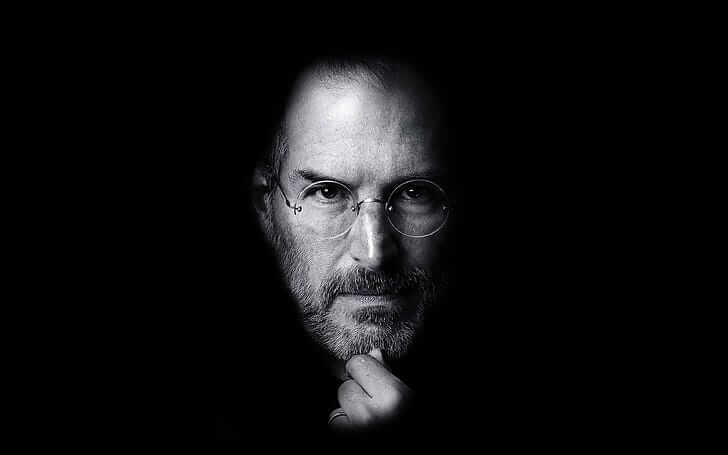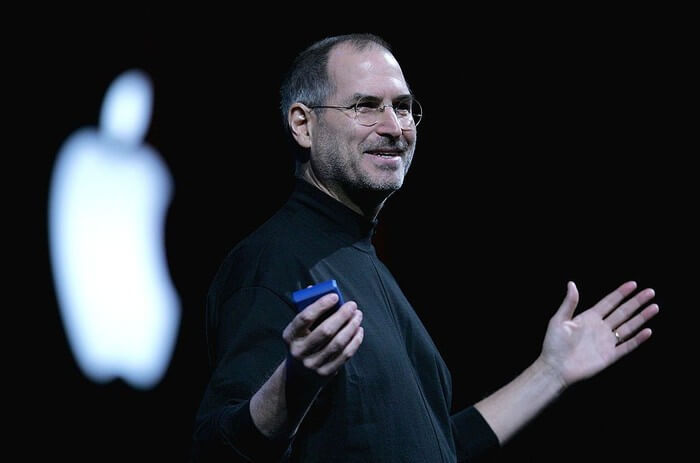The Life and Legacy of Steve Jobs: A Visionary Who Changed the World

Steve Jobs was more than just a businessman or a tech executive—he was a visionary, a creative genius, and a cultural icon who revolutionized multiple industries. From personal computing and animated films to music, phones, and digital publishing, Jobs’ legacy spans across technologies that define the modern world. This blog post takes a deep dive into the life, career, and enduring impact of Steve Jobs.
Early Life and Background
Born on February 24, 1955, in San Francisco, California, Steve Jobs was adopted by Paul and Clara Jobs. From an early age, Jobs displayed an unconventional mind and a fascination with electronics. His early life in Silicon Valley exposed him to pioneers in computing, setting the stage for what would become an extraordinary career.

After briefly attending Reed College in Oregon, Jobs dropped out, choosing instead to audit creative classes like calligraphy. This attention to design and detail would later become a hallmark of Apple’s product philosophy.
Founding Apple Inc.
In 1976, at just 21 years old, Jobs co-founded Apple Computer with his friend Steve Wozniak in his parents’ garage. Their first product, the Apple I, was followed by the highly successful Apple II, which helped launch the personal computer revolution.
Apple’s innovative approach to user-friendly design, intuitive interfaces, and sleek aesthetics quickly made it a household name. The launch of the Macintosh in 1984 introduced the world to the first widely-used graphical user interface.
A Dramatic Exit and Triumphant Return
In 1985, internal tensions led to Jobs’ departure from Apple. Undeterred, he founded NeXT, a company that focused on high-end computers for education and business markets. He also purchased a small animation company from George Lucas, which became Pixar. Under Jobs’ leadership, Pixar produced groundbreaking films like Toy Story, Finding Nemo, and The Incredibles, redefining animation and storytelling.
In 1997, Apple acquired NeXT, bringing Jobs back to the company he founded. He soon became CEO and began one of the most remarkable turnarounds in business history.
Revolutionizing the Digital World
Jobs’ return to Apple marked the beginning of a new era. Over the next decade, he unveiled a series of game-changing products:
- iMac (1998) – Reintroduced Apple with a colorful and user-friendly desktop.
- iPod (2001) – Changed the way people listen to music.
- iTunes Store (2003) – Revolutionized music distribution.
- iPhone (2007) – Transformed the smartphone industry.
- App Store (2008) – Created a platform for millions of developers.
- iPad (2010) – Popularized tablet computing.
Jobs’ philosophy of integrating hardware and software into seamless experiences made Apple’s ecosystem both unique and beloved.
Leadership Style and Personality
Steve Jobs was known for his perfectionism, charisma, and at times, a demanding personality. His intense focus and passion often pushed his teams to achieve the impossible. While controversial at times, his leadership led to breakthroughs that redefined entire industries.
Illness and Passing
In 2003, Jobs was diagnosed with a rare form of pancreatic cancer. He continued to lead Apple through treatments and health challenges, stepping down as CEO in August 2011. He passed away on October 5, 2011, at the age of 56.
The world mourned the loss of a visionary. Tributes poured in from world leaders, business executives, and millions of fans whose lives were touched by his innovations.
Legacy
Steve Jobs’ legacy lives on in the products we use, the movies we watch, and the way we interact with technology. He inspired a generation of entrepreneurs to think differently, embrace simplicity, and never settle for “good enough.”
His authorized biography, Steve Jobs by Walter Isaacson, and the numerous documentaries and films made about his life, reflect the deep impact he had on the world.
Final Thoughts
Steve Jobs was a pioneer whose creativity, ambition, and relentless pursuit of excellence reshaped modern life. His story is a testament to the power of innovation and the belief that great ideas—when paired with determination—can truly change the world.
(FAQs) About Steve Jobs
Q1: Who was Steve Jobs?
A: Steve Jobs was an American entrepreneur, inventor, and co-founder of Apple Inc. He was known for his visionary leadership and was instrumental in creating iconic products like the iPhone, iPad, and Mac.
Q2: When and where was Steve Jobs born?
A: Steve Jobs was born on February 24, 1955, in San Francisco, California, USA.
Q3: What companies did Steve Jobs found?
A: Steve Jobs co-founded Apple Inc. He also founded NeXT, a computer company, and acquired Pixar Animation Studios, which he turned into a leading animation company.
Q4: Why did Steve Jobs leave Apple in 1985?
A: Jobs left Apple in 1985 after a power struggle with the company’s board and then-CEO John Sculley. He later returned to Apple in 1997 after the company acquired NeXT.
Also Read: Who Is Elle Fanning? – Bio, Wiki, Stats & More
Q5: What were some of Steve Jobs’ most famous inventions or contributions?
A: Jobs played a key role in developing the Macintosh computer, iPod, iTunes, iPhone, iPad, and the App Store, reshaping how people use technology.
Q6: What was Steve Jobs’ role at Pixar?
A: Steve Jobs bought Pixar from Lucasfilm and became its CEO. Under his leadership, Pixar produced blockbuster animated films like Toy Story, Finding Nemo, and The Incredibles.
Q7: When did Steve Jobs die and what was the cause?
A: Steve Jobs passed away on October 5, 2011, due to complications from a rare form of pancreatic cancer called a pancreatic neuroendocrine tumor.
Q8: What is Steve Jobs’ legacy?
A: Jobs left behind a legacy of innovation, design excellence, and visionary leadership. His work transformed technology, communication, entertainment, and more.
Q9: Is there a biography of Steve Jobs?
A: Yes, the most well-known biography is Steve Jobs by Walter Isaacson, published in 2011 with Jobs’ full cooperation.
Q10: What was Steve Jobs’ leadership style like?
A: Jobs was known for being a demanding yet inspiring leader. He had a strong focus on perfection, design, and user experience, often pushing his teams to achieve extraordinary results.



